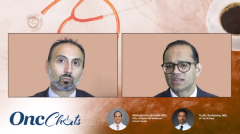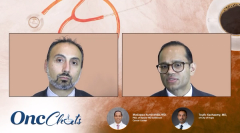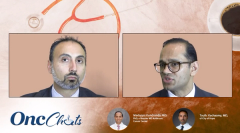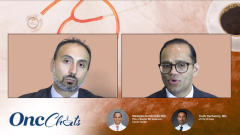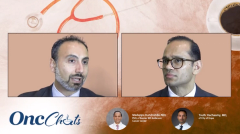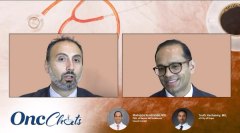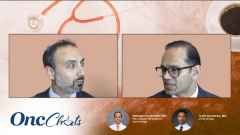
Understanding Endoscopy in the Realm of GI Cancers: Efforts to Advance the Field
In this sixth episode of OncChats: Understanding Endoscopy in the Realm of GI Cancers, Madappa Kundranda, MD, PhD, and Toufic A. Kachaamy, MD, share efforts to increase awareness around endoscopy in gastrointestinal cancer.
Episodes in this series

In this sixth episode of OncChats: Understanding Endoscopy in the Realm of GI Cancers, Madappa Kundranda, MD, PhD, of Banner MD Anderson Cancer Center, and Toufic A. Kachaamy, MD, of City of Hope, share efforts to increase awareness around endoscopy in gastrointestinal cancer.
Kundranda: Recently, I know that you’ve pioneered some of these efforts to give this field of interventional endoscopy more visibility within the gastroenterology world. Can you tell us about those efforts?
Kachaamy: Yeah, absolutely. First, thanks for partnering [with us] in this area. In the gastroenterology world, we have many initiatives to improve education or even research. For example, the American Society of Gastrointestinal Endoscopy just started a significant interest group in endoscopic oncology [for which] I’m the founder and the chair. The foundation for interventional and therapeutic endoscopy has an endoscopic oncology committee, [which I also] chair. These are 2 avenues where [we are] hoping to achieve similar outcomes, which is improving knowledge, developing guidelines based on data that help the [patients with] cancer and are relevant to the oncology world, and stimulating research.
We have some initiatives that focus on oncology, for example, this video blog. We want to thank OncLive for this opportunity and for having interest. We also have initiatives that bring all stakeholders together: the oncologist, the gastroenterologist, the surgeon, radiation oncologist—[the whole] multidisciplinary team. [An example of this] is the conference that we started together:
Check back on Wednesday for the last episode in this series.


